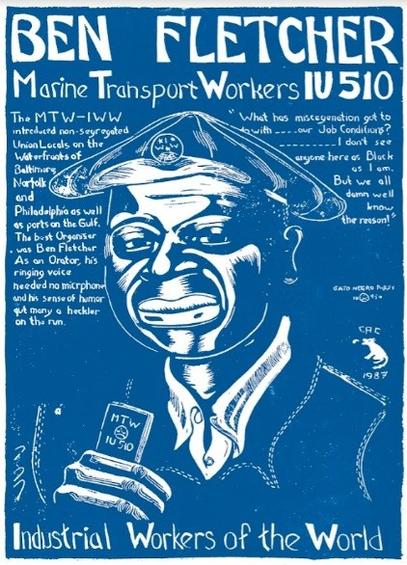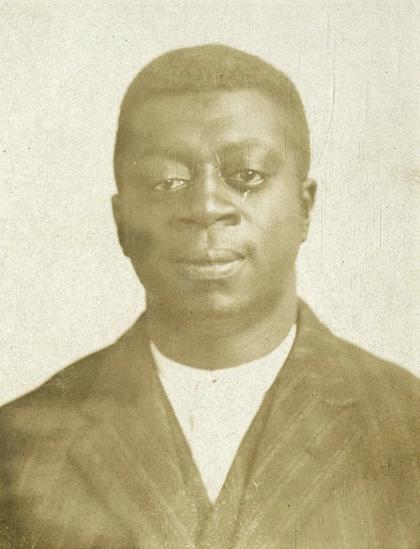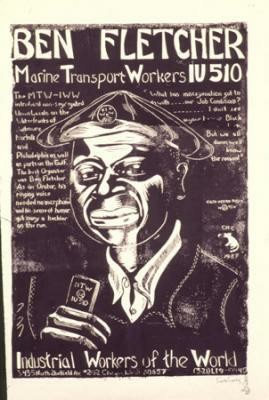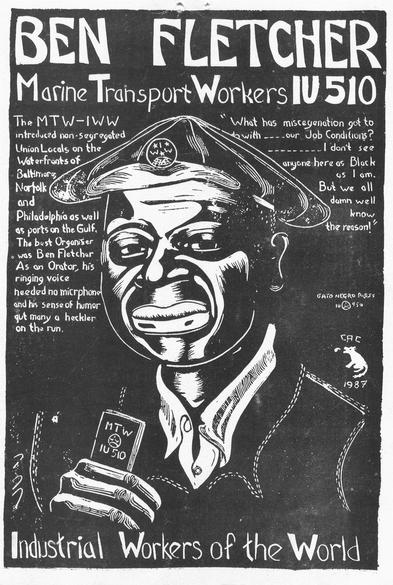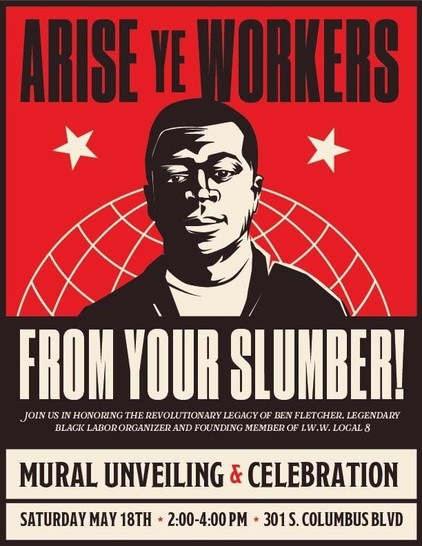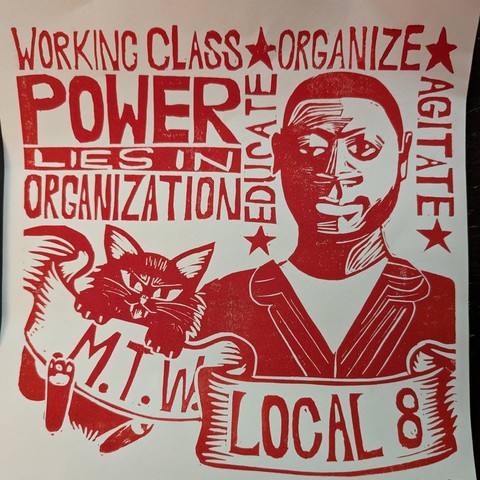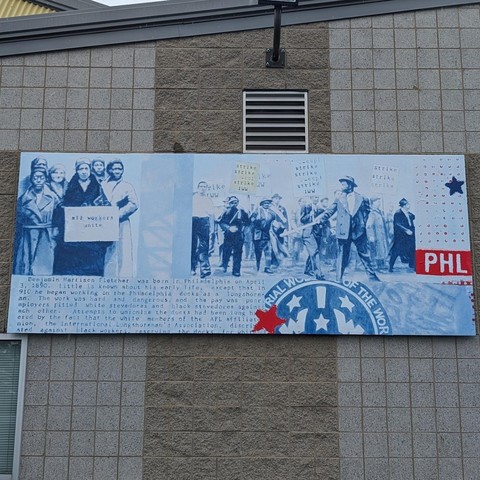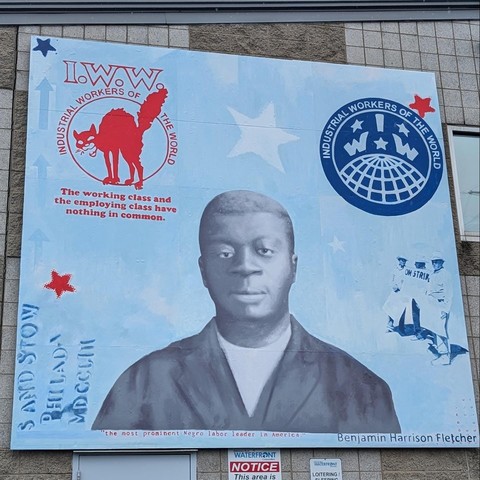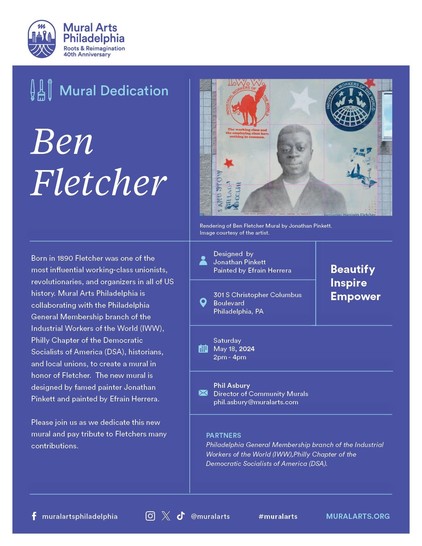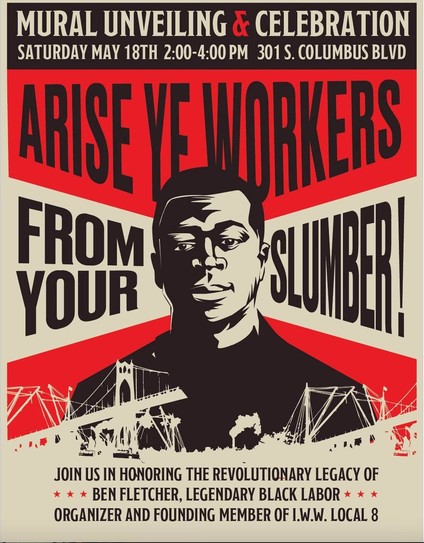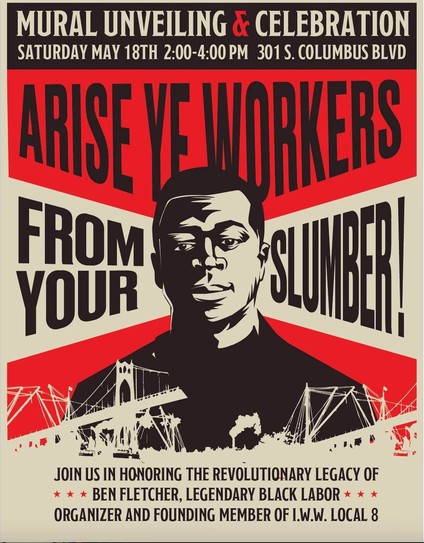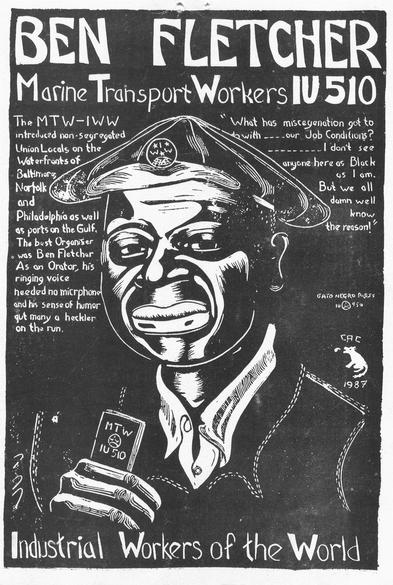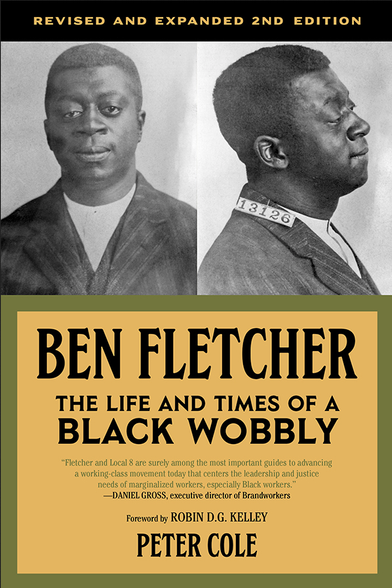Today in Labor History April 14, 1917: IWW sailors went on strike in Philadelphia and won a ten dollar per month raise. Ben Fletcher, an African-American IWW organizer, was instrumental in organizing the Philadelphia waterfront. Fletcher was born in Philly in 1890. He joined the Wobblies (IWW) in 1912, became secretary of the IWW District Council in 1913. He also co-founded the interracial Local 8 in 1913.
In 1913, Fletcher led 10,000 IWW Philly dockworkers on a strike. Within two weeks, they won a 10-hr day, overtime pay, & created one of the most successful antiracist, anticapitalist union locals in the U.S. At the time, roughly one-third of the dockers on the Philadelphia waterfront were black. Another 33% were Irish. And about 33% were Polish and Lithuanian. Prior to the IWW organizing drive, the employers routinely pitted black workers against white, and Polish against Irish. The IWW was one of the only unions of the era that organized workers into the same locals, regardless of race or ethnicity. And its main leader in Philadelphia was an African American, Ben Fletcher.
By 1916, thanks in large part to Fletcher’s organizing skill, all but two of Philadelphia’s docks were controlled by the IWW. And the union maintained control of the Philly waterfront for about a decade. At that time, roughly 10% of the IWW’s 1 million members were African American. Most had been rejected from other unions because of their skin color.
Fletcher also traveled up and down the east coast organizing dockers. However, he was nearly lynched in Norfolk, Virginia in 1917. And in 1918, the state arrested him, sentencing him to ten years for the crime of organizing workers during wartime. He served three years.
You can read my full biography of Ben Fletcher here: https://michaeldunnauthor.com/2021/05/13/ben-fletcher-and-the-iww-dockers/
#workingclass #LaborHistory #IWW #union #strike #benfletcher #racism #africanamerican #philadelphia #longshore #lynching #BlackMastadon
